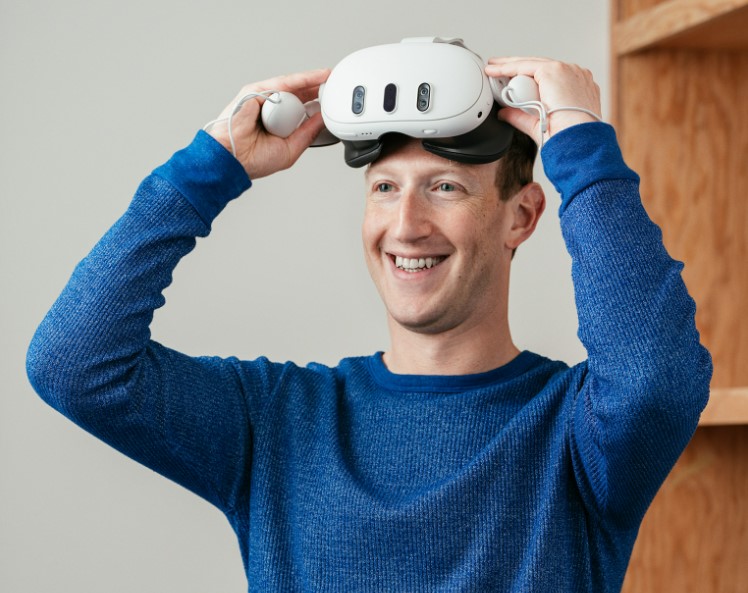While Google works on its project that can almost make a person materialise in front of us during a video call, the death of the metaverse is announced. Also at the hands of ChatGpt.
That’s right, because after less than two years, the fantastic world brought to the fore in October 2021 by Mark Zuckerberg is driving away investors who had thrown themselves into it headlong.
But who now consider it much more profitable and safer to focus on generative artificial intelligence.
Table of Contents
Brief history of the Metaverse
The Metaverse was born in 2021 when Facebook’s father changed the name of his $1 trillion company to Meta. Since then, it has become the obsession of the tech world and a lure on Wall Street.
However, Business Insider notes, the hype around the Metaverse ‘failed to save it and the lack of a coherent vision for the product led to its decline’.
The arrival then of generative AI, in particular with the ChatGpt bomb launched by OpenAI, did the rest.
Forecasts gone up in smoke
In February 2022, the consulting firm Gartner claimed that by 2026, 25 per cent of people would spend at least one hour a day in the Metaverse.
The Wall Street Journal wrote that it would change the way we work forever. For McKinsey it could generate a value of up to “$5 trillion”. And, finally, Citi published a report stating that the Metaverse would represent a $13 trillion opportunity.
Now, we are certain that none of this will come to fruition.
All the failures of virtual worlds
Decentraland, one of the most heavily funded virtual world projects, had only about 38 daily active users in its ‘$1.3 billion ecosystem’.
And it didn’t fare any better at Horizon Worlds, Zuckerberg’s world. Which last October was inhabited by less than 200,000 users. This is “a number well below the 500,000 target Meta had set for the end of 2022.”
Furthermore, the Wall Street Journal reported that only about 9 per cent of user-created worlds were visited by more than 50 players. While The Verge claimed that the system was so riddled with bugs that even Meta employees advised against it.
The identity crisis of Zuckerberg’s world
Zuckerberg spoke of the Metaverse as ‘an expansive and immersive vision of the Internet’. But his business proposal, Entrepreneur commented, lacked a clear explanation of its use. As well as a target audience, and the willingness of customers to adopt the product. As well as a long-term vision for the project.
However, according to Business Insider, the ‘complacent’ press published statements about the future of the technology ‘that were somewhere between unrealistic and irresponsible’.
Companies infected by enthusiasm
Even the biggest tech companies – but not only, just think of Walmart and Disney – got carried away by Zuckerberg’s promises. And, started to open or expand dedicated departments. The same ones that have already started to close and lay off thousands of people in recent months.
Microsoft, Entrepreneur recalls, reported that it cannot “exaggerate how much of a breakthrough the Metaverse has been” for the company, the industry and the world.
Roblox, an online gaming platform that has been around since 2004, rode the wave to an initial public offering and a valuation of $41 billion.
And then the cryptocurrency industry. “The people behind the company Bored Ape Yacht Club NFT,” writes Business Insider, “fooled the press into believing that uploading digital photos of someone’s monkey in VR would be the key to ‘dominating the Metaverse’. In addition to convincing many people that digital Metaverse land would be the next frontier in real estate investment.
Even Zuckerberg said enough
Now, however, following this long series of failures, Zuckerberg himself, after spending more than $100 billion on research and development for the Metaverse, implicitly declared its death last March.
Specifically, he said that “Meta’s biggest investment is the advancement of artificial intelligence and its integration into every one of our products”.
Read also: The race for ultra-powerful AI: who will reach the 2 trillion parameter peak












